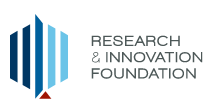In today’s competitive digital landscape, organizations face growing pressure to adopt Artificial Intelligence (AI) to keep pace with innovation. Yet, adoption is often hindered by high costs, limited expertise, fragmented data, and the challenge of aligning AI with business goals. Many enterprises struggle to leverage their own data, missing opportunities for personalization, automation, and data-driven decisions—leading to inefficiencies, reduced competitiveness, and lost revenue.
To address these challenges, we propose MILA (Multi-Intelligent Learning Agents), an advanced AI platform of virtual agents designed to automate complex workflows, enhance service quality, and support both internal and external stakeholders. MILA simplifies IT ecosystems through prebuilt and customizable agents tailored to business domains. By training automatically on any enterprise data, MILA delivers intelligent services for lead generation, upselling, and cross-selling, while integrating seamlessly with existing systems.
Our next-generation MILA will go beyond today’s Gen AI platforms, shifting from static workflows to adaptive, semi-autonomous decision-making. Unlike most commercial LLM-based tools, MILA will self-optimize and adjust to changing goals and data environments—positioning it as a truly agentic AI platform, capable of executing complex tasks with minimal human intervention.
The main objectives of this project are:
MILA is already in the market, providing 24/7 service through interactive channels such as Messenger and website chatbots, and aims to elevate this experience further. Agentic AI will unlock significant performance gains as systems evolve to meet enterprise goals. Our strength lies in the expertise of our AI team and collaborations with the academic community. A challenge remains the shortage of experienced AI engineers, requiring us to train junior staff, which slows development. Still, opportunities abound as enterprises cautiously adopt custom platforms like MILA. The main threat is the rapid pace of technological change, which we closely monitor to adapt our platform accordingly.
MILA was developed to simplify business operations by automating complex tasks and enabling natural, engaging conversations. It meets the demand for adaptive, scalable solutions that integrate seamlessly into enterprise ecosystems. Built on Microsoft Azure’s cloud services and technologies, MILA ensures enterprise-grade security, flexibility, and high availability across environments.
At its core, MILA uses Azure AI Bot Service to manage responsive communication across messaging apps, websites, and mobile apps. These interactions are routed through a service-oriented architecture with API-based authentication, real-time workflows, and secure token management using Azure App Services, Azure SQL, and Azure Functions. This infrastructure scales easily as customer needs and use-case complexity grow.
MILA’s unique strength is its integration with OpenAI services, delivering advanced generative language capabilities. While already operating with foundational agentic AI, MILA is evolving toward advanced autonomy—able to handle complex goals, adapt to changing environments, and optimize decisions. This differentiates it from standard LLM-based chatbots and positions it as a pioneer in agentic AI.
The platform’s modular architecture allows independent yet cohesive operation of its components. It supports diverse enterprise knowledge bases, including documents and manuals, and routes queries dynamically to language services, Q&A modules, APIs, or custom skills. This design enables industry-specific tailoring and seamless integration with existing systems.
Administration is centralized via a Web App, while secure token services and a SQL-powered data warehouse ensure strong access control and analytics. MILA also integrates with external knowledge systems, API-based skills, and third-party assistants to expand its functional range.
With support for Greek, Greeklish, and Cypriot dialects, MILA is adapted to local linguistic and cultural needs while remaining ready for international users. Its multilingual engine and analytics dashboard—tracking sentiment, usage, fallbacks, and engagement—help organizations optimize services and user satisfaction continuously.
MILA’s long-term vision is built on agentic AI innovation. Unlike static systems, its architecture is evolving to autonomously pursue objectives, manage dynamic tasks, and self-optimize workflows with minimal human intervention. By combining Azure AI Bot Services for dialog orchestration and OpenAI’s generative models for advanced language understanding, MILA shifts from reactive chatbots to proactive AI agents—setting a new benchmark for enterprise AI transformation.
The MILA project is structured over a 9-month timeline and comprises five Work Packages (WPs) with a clearly defined sequence and interdependencies. The schedule follows an Agile development approach with sprints and iterative testing cycles. The project execution is divided into three main phases:

